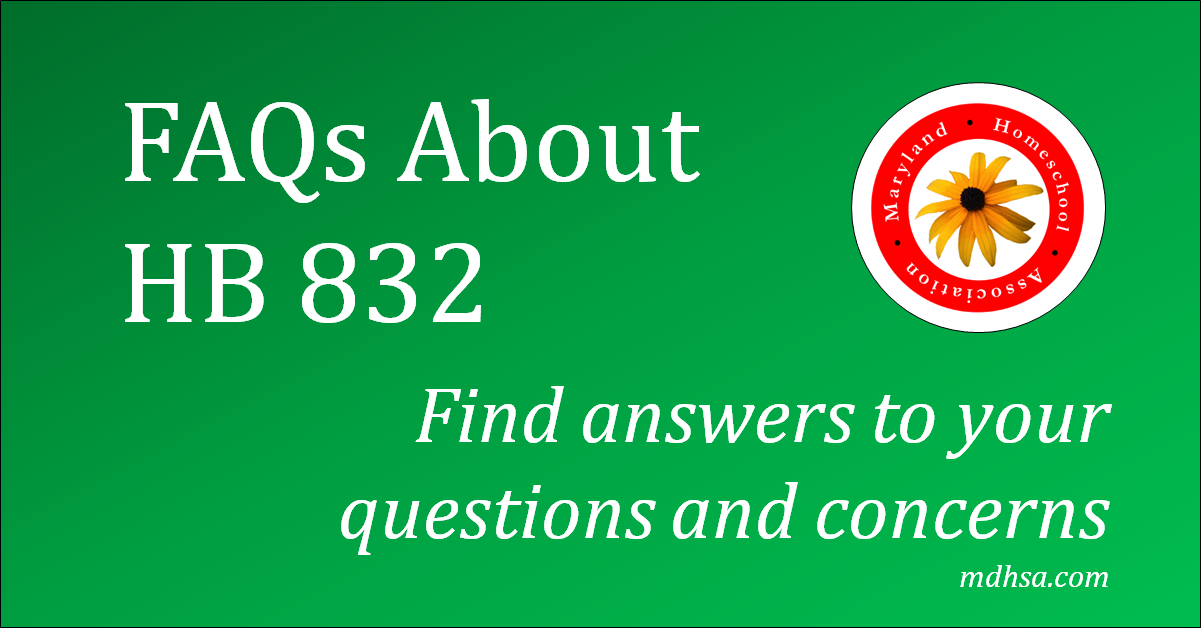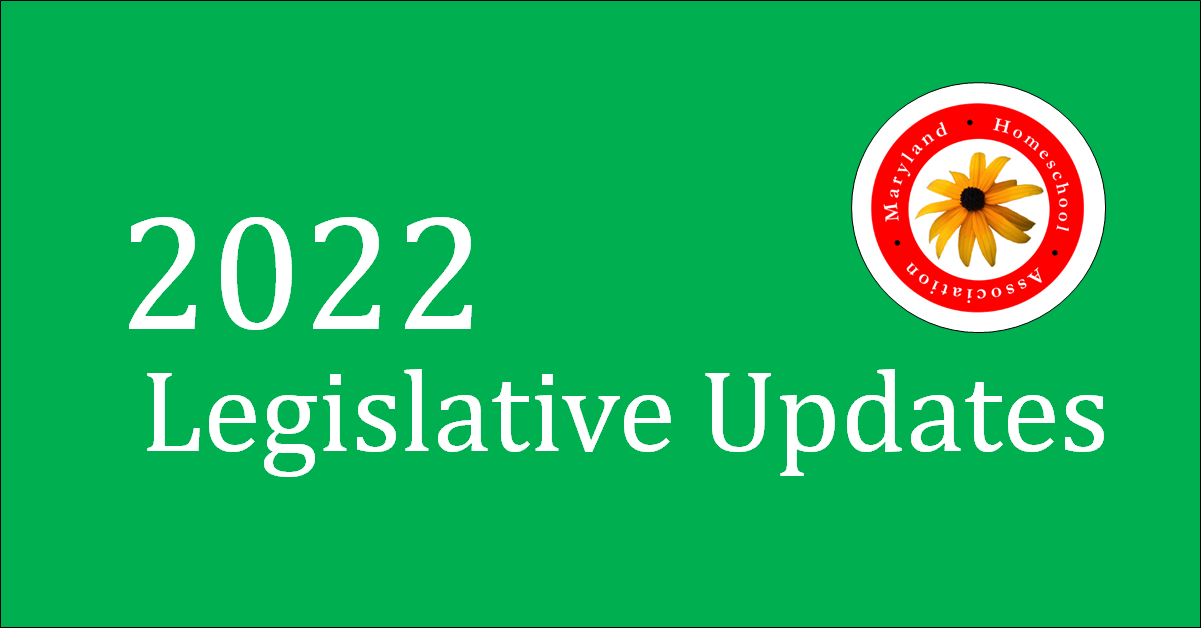** This webpage is provided for informational purposes. It is not legal advice. **
2019: SB 260 Community Colleges – Maryland Community College Promise Scholarships – Revisions
This bill seeks to alter the eligibility requirements for a Maryland Community College Promise Scholarship and alter the employment requirements relating to a service obligation associated with a scholarship.
Get the latest update on SB 260 from the General Assembly.
[as of 6/3/19] The bill was signed into law by Governor Hogan. The final bill changed eligibility to include students who are registered in an apprenticeship program, as well as those who are taking courses that will lead to licensure or certification, rather than a college diploma. Eligibility language relating to “graduate from high school” was not changed.
When the law that created the Maryland Community College Promise Scholarship was first passed, it did not specifically include homeschool high school graduates as being eligible to apply. Currently, eligibility requires that a student must have “graduat[ed] from a high school or successfully completing a GED in the State”.
According to the Maryland Higher Education Commissison, who oversees this scholarship, homeschoolers may only qualify if they provide documentation:
- Indicating graduation from:
(1) a public high school,
(2) an MSDE-approved nonpublic school,
(3) a religiously exempt school, or
(4) an institution or other entity supervising home-school instruction. - Successful completion of a GED
Because the law is being revised this year, we believe different eligibility standards for homeschoolers should be incorporated, as families who review with their county liaison are being held to a different standard than umbrella reviewed homeschool families.
Email or call each member of the House Appropriations Committee and request that they amend the bill to specifically include students who have completed a home instruction program as being eligible to apply for the Promise Scholarship. If a homeschool student has been accepted into a community college, there should be no need to take the GED.
2019: HB 486 Education – Personnel Matters – Child Sexual Abuse and Sexual Misconduct Prevention
This bill seeks to require Boards of Education and all nonpublic schools to conduct background checks on certain employees who have direct contact with students.
Get the latest update on HB 486 from the General Assembly.
[as of 10/1/19] The bill was signed into law by Governor Hogan. The final bill requires all nonpublic schools – approved and church-exempt – to conduct certain background checks on employees who have direct student contact. The law also includes provisions regarding the release of information and the retention of records.
This bill does not affect individual homeschool families BUT it does relate to all umbrellas, co-ops, and other entities that operate as an approved or church-exempt nonpublic school.
This update is being provided for informational purposes only. If you operate an approved or a church-exempt nonpublic school, you should contact MSDE or an attorney for information on how the bill will effect your operations.
2019: HB 1186 Nonpublic Schools – Fire Drill Requirements – State Fire Prevention Code
This bill seeks to require each Maryland nonpublic school to hold fire drills in accordance with the State Fire Prevention Code; keep records of the drills; and send copies of the records to the Maryland State Department of Education.
Get the latest update on HB 486 from the General Assembly.
[as of 10/1/19] The bill was signed into law by Governor Hogan. The final bill requires all nonpublic schools – approved and church-exempt – to hold fire drills in compliance with the Maryland State Fire Prevention Code.
This bill does not affect individual homeschool families BUT it does relate to all umbrellas, co-ops, and other entities that operate as an approved or church-exempt nonpublic school and has a physical location where children meet.
This update is being provided for informational purposes only. If you operate an approved or a church-exempt nonpublic school, you should contact MSDE or an attorney for information on how the bill will effect your operations.
2019: HB 1384 – Deaf or Hard of Hearing Individuals – Support for Parents
This bill would make hearing aids and certain instructional material freely available to qualifying families with children who are deaf or hard of hearing.
Get the latest update on HB 1384 from the General Assembly.
[as of 6/3/19]: This bill was signed into law by Governor Hogan. It redefines the eligibility and expands resources that are available to families with children who are deaf and hard of hearing. Because eligibility specifically states that an individual must be under the age of 21 AND not graduated from high school – but does not specifically tie eligibility to enrollment in a public or nonpublic school – homeschool families who meet other eligibility requirements can obtain services.
This bill does not affect homeschool rights or responsibilities, however eligibility for service may include homeschool families.
This update is being provided for informational purposes only.
2019: HB 356 Primary and Secondary Education – Nonpublic Schools – Required Information
This bill would require certain nonpublic schools to submit certain information on the occupancy of facilities, accreditation, curricula, and courses of study to the State Department of Education.
Get the latest update on HB 356 from the General Assembly.
Get the latest update on SB 260 from the General Assembly.
[as of 6/3/19]: This bill made it through the House but received an Unfavorable report from the Senate Education, Health, and Environmental Affairs Committee.
This bill does not effect individual homeschool families, however it will have an impact on nonpublic schools who work with homeschoolers, particularly dealing with fire code safety concerns.
This update is being provided for informational purposes only.
Last modified on October 4, 2019



